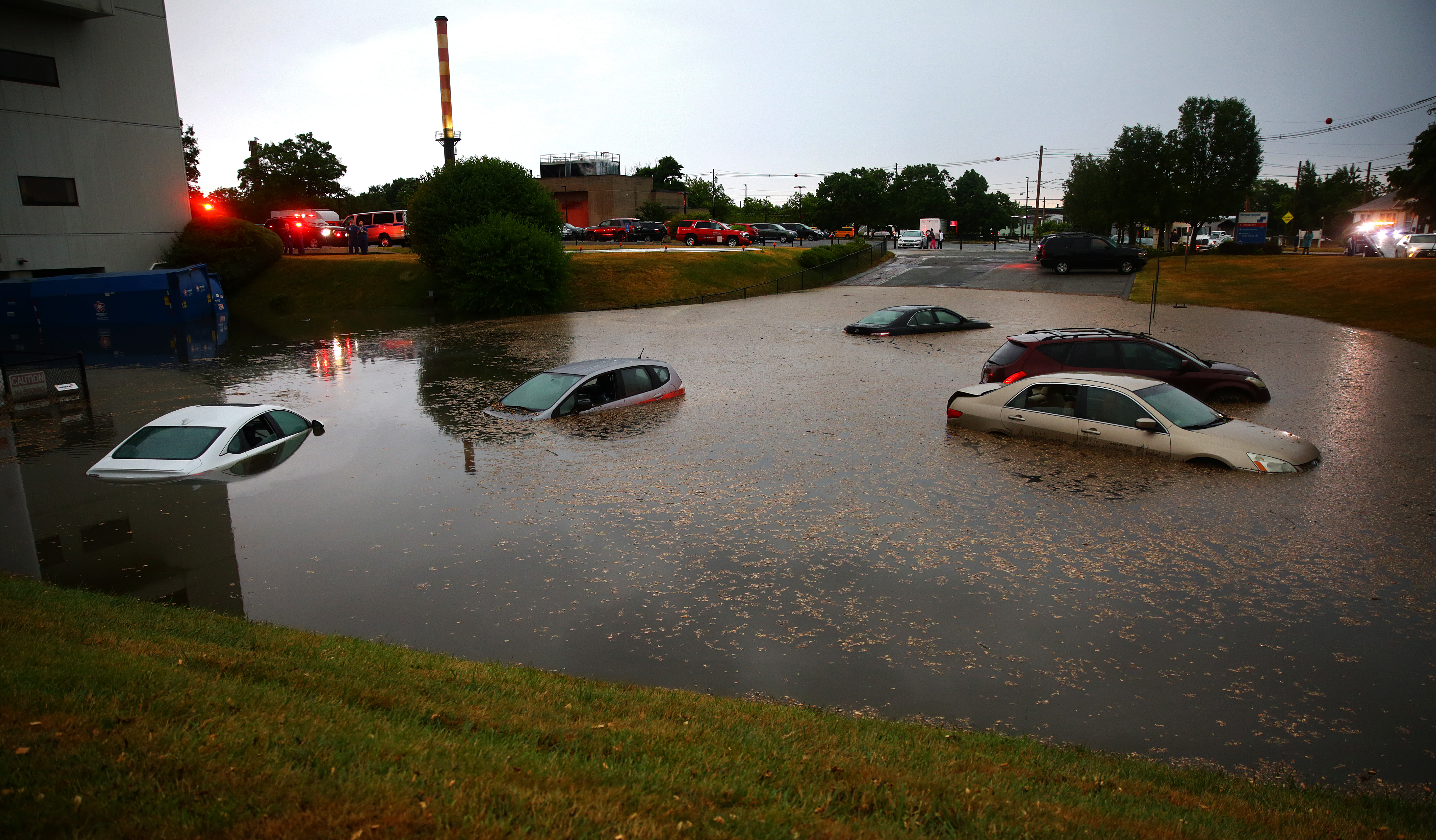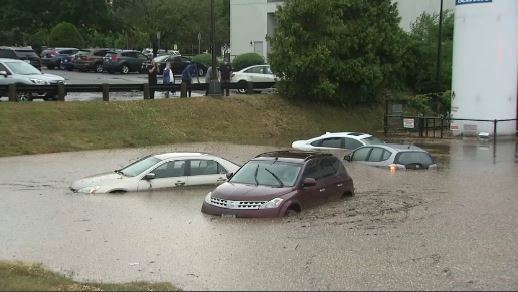David Hayes calls the deluge that swept through Norwood last month a “1,000-year storm.”
On June 28, the skies opened up, dropping 4 inches of rain in 90 minutes. Water gushed like rapids through the streets. It swallowed up cars in the hospital’s parking lot and rushed into the basement, knocking out key infrastructure, including the backup generator.
Hayes, the town’s deputy fire chief, said firefighters had to evacuate dozens of patients in the dark.
“We were in pitch black hallways the entire time,” he said. “It was just a mess. It was completely different than anything we’d prepared for.”
Everyone made it out safely. But there will be no quick recovery for Norwood Hospital, which is still assessing the extent of the damage.
A spokesman for Steward Health Care, the hospital’s private owner, said reopening the emergency department is its top priority. The company is working with state officials to determine a timeline.
Meanwhile, the abrupt closure has had far-reaching consequences, according to hospital administrators and town leaders who spoke with the NBC10 Boston Investigators, from increasing how long it takes to get patients to the hospital, to leaving hospital employees without work.
Kathy Reardon, an emergency department nurse, witnessed the devastating flood. Reardon said she remembers seeing mulch floating in the basement.
“The chairs of the cafeteria got tossed around,” she said. “On the third floor of the ICU, water was pouring through the ceiling. It was just awful.”
Reardon, who’s worked at Norwood Hospital for 32 years, and approximately 700 of her colleagues are suddenly on the sidelines during a public health crisis. The veteran nurse, who also co-chairs her local bargaining unit, is collecting unemployment for the first time in her career.
Steward Health Care is working to reassign Norwood Hospital employees to other facilities it owns in Massachusetts, according to its spokesman. For those who remain furloughed, the company will continue to provide health care benefits.
But it could be a long wait. The hospital, which serves about two dozen communities, is expected to remain out of commission for months. Hayes said Norwood town leaders are preparing for it to be several years before the hospital is fully operational.
“Every fire department in the region comes here,” said Hayes, before adding, “Used to come here.”
Norwood paramedics typically bring 15 patients per day to the hospital, but those trips are now detoured elsewhere.
On a day the NBC10 Boston Investigators rode along, first responders took one patient to Beth Israel Deaconess Hospital in Needham. Another ambulance traveled all the way to Brigham and Women’s Hospital in Boston.
In the week after the flooding, Norwood’s ambulance response time climbed to an average of roughly 36 minutes, according to Hayes. During the same time period in 2019, he said the average response time was 22 minutes – meaning it’s now 60 percent longer.
Depending on the emergency, every minute can matter.
“There are a lot of things that are really time dependent, and so we want to see patients as quickly as we’re able,” said Dr. Brien Barnewolt, chief of emergency medicine at Tufts Medical Center.
When patients have heart attacks, for example, it’s critical to get them into a cardiac cath lab, where doctors can examine the heart, he said. And strokes need to be diagnosed quickly to determine the best course of treatment.
With Norwood Hospital closed, Norwood firefighters now take most patients to Beth Israel in Needham, Brigham and Women’s Faulkner Hospital in Jamaica Plain, Good Samaritan Hospital in Brockton, and Newton-Wellesley Hospital in Newton.
And if Norwood’s two ambulances are tied up transporting patients, it must rely on mutual aid from another town to cover emergencies.
Spillover is already evident at Newton-Wellesley. On a typical day, it now receives several patients from the Norwood area by ambulance, and eight to 10 walk in to the emergency department, Chief Nursing Officer Kevin Whitney said.
Whitney said it’s been manageable so far, thanks to preparations made for a possible surge of COVID-19. The pandemic has also kept some of the typical patient volume lower because people are delaying elective procedures and routine checkups.
But with the potential for a second wave of coronavirus infections to develop in the fall, the closure threatens to strain the hospital system at a critical time.
“We have plans in place that if we ever did see our [emergency department] volume go above what we typically would see, we’re able to surge into different areas,” Whitney said. “The message to the community is that the hospitals around Norwood Hospital are here to help.”



